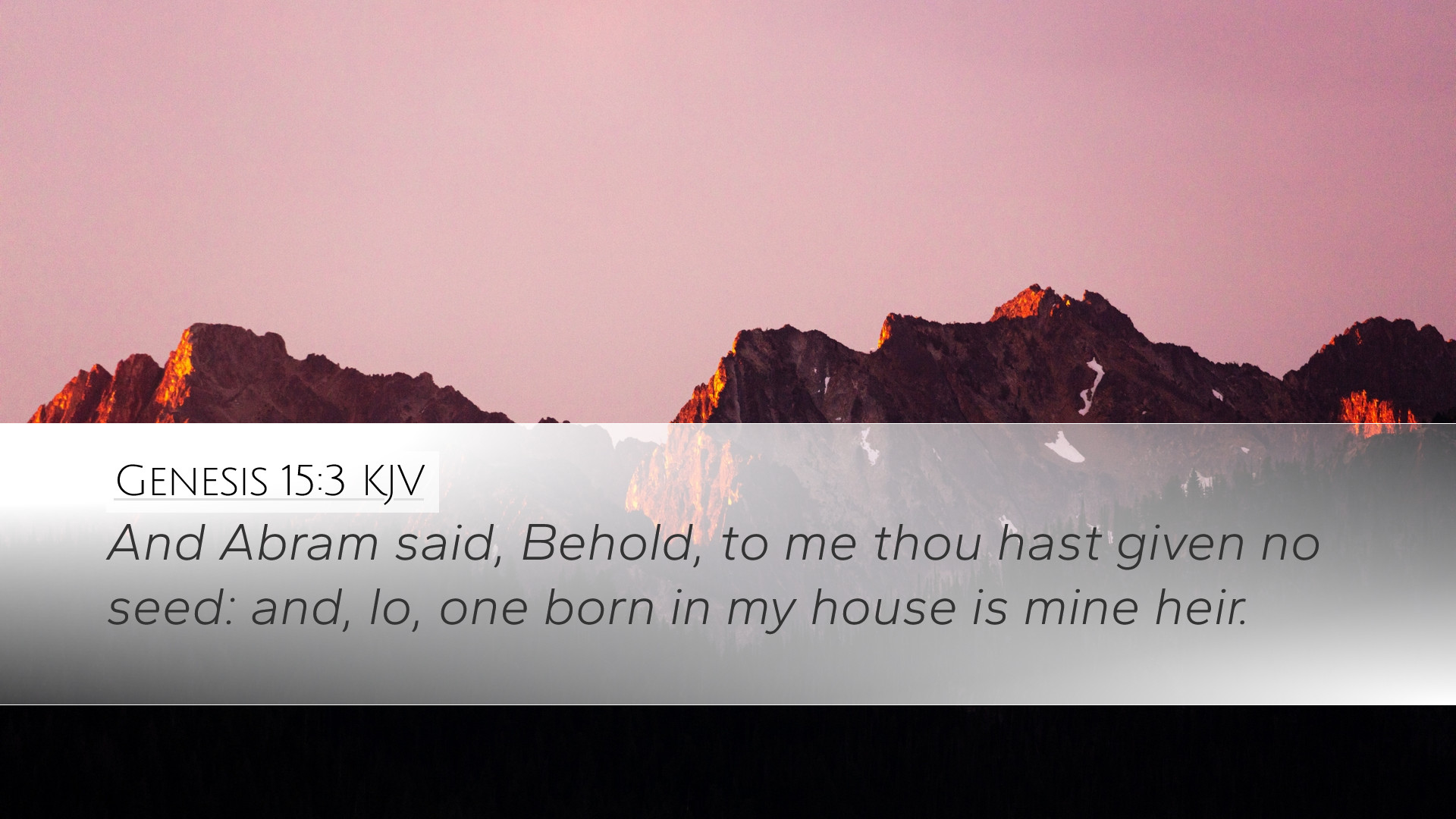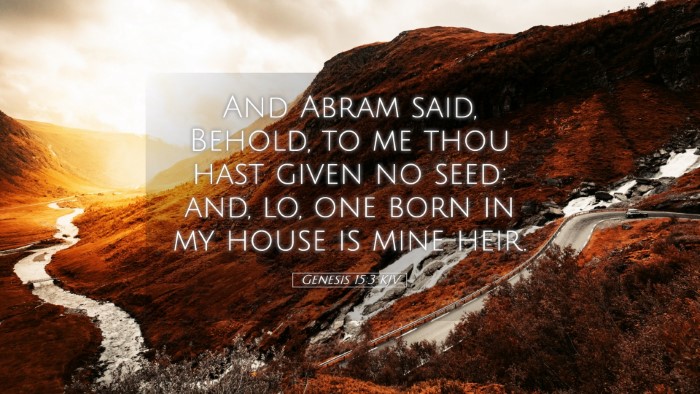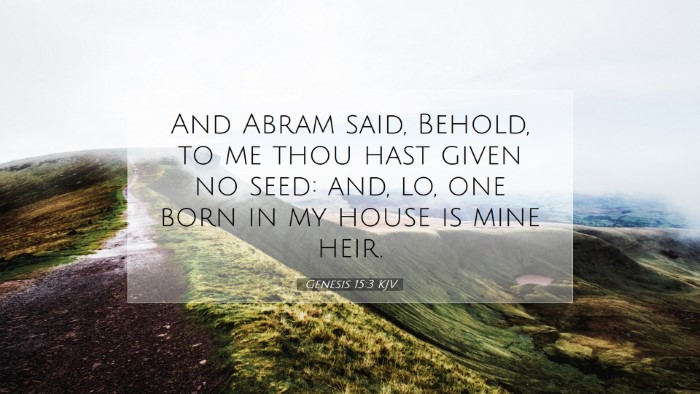Genesis 15:3 - Commentary Summary
Genesis 15:3 states: "And Abram said, Behold, to me thou hast given no seed: and, lo, one born in my house is mine heir."
Contextual Overview
This verse is part of a larger narrative where God establishes His covenant with Abram, promising him descendants and land. In this passage, we observe Abram's concern about his lack of an heir, reflecting his reliance on the promises of God amidst his circumstances.
Insights from Commentaries
Matthew Henry's Commentary
Matthew Henry emphasizes Abram’s faith amidst his doubts. He suggests that Abram’s reference to a "seed" highlights his deep desire for an heir. This is significant in biblical tradition as lineage and inheritance were foundational aspects of God's covenant promise. Henry notes that Abram was well aware of God's promises and was now seeking clarification on how it would be fulfilled, showing both his faith and the natural concern for his future.
Albert Barnes' Notes on the Bible
Albert Barnes offers a practical application of this verse, pointing out that Abram’s concern is relatable to human experience. He interprets Abram's statement as an expression of his anxiety regarding God’s promise amid his old age and the barrenness of Sarai (his wife). Barnes highlights that God’s covenant will come to fruition not by human effort or understanding but through divine intervention. This aligns well with the broader themes of grace and faith, which are central to understanding the biblical narrative.
Adam Clarke's Commentary
Adam Clarke provides a detailed look at the implications of the term "heir." He notes that Abram’s mention of "one born in my house" could refer to Eliezer of Damascus, a servant whom Abram was ready to adopt. This suggests a cultural context where inheritance could be bestowed upon a servant if no biological heir existed. Clarke emphasizes the deep emotional struggle and disappointment Abram faced, portraying a very human response to divine promises. He stresses the faithfulness of God even when circumstances appear contradictory to His promises.
Theological Implications
The dialogue between Abram and God raises profound theological themes regarding faith, promise, and the nature of God’s covenant. Each commentary invites the reader to consider:
- The Nature of Faith: Abram's faith is not blind; it is a quest for understanding. God does not rebuke him for his questioning but engages with him, highlighting the relational aspect of faith.
- Divine Provision: The assurance that God's promises may be fulfilled in unexpected ways, often beyond human reason and understanding.
- Human Doubt and Divine Certainty: God’s covenant remains secure despite human doubt, reinforcing that God’s plans will unfold according to His wisdom and timing.
Application for Pastors and Theologians
For pastors and theologians, Genesis 15:3 serves as a reminder of the importance of fostering an environment where congregants can express their uncertainties and grievances regarding God’s promises. In pastoral care, it’s vital to acknowledge the struggle of faith amidst life's uncertainties while gently guiding individuals back to God's assurances. The commentaries highlight not only Abram's faith but also God’s tenderness in addressing our fears and doubts.
Conclusion
Genesis 15:3 encapsulates a critical moment in the Genesis narrative, reflecting a deep yearning for the fulfillment of God's promises. Through insights from public domain commentaries, we recognize that as believers, we are called to navigate our doubt with faith. Abram’s plea to God becomes a poignant lesson about seeking hope and assurance in times of uncertainty. This verse, therefore, invites pastors, students, and scholars alike to explore themes of covenant, faith, and the unwavering promises of God.


